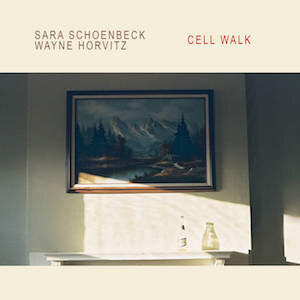Label: Sunnyside Records, 2020
Personnel - Steve Cardenas: guitar; Jon Cowherd: piano; Ben Allison: bass; Brian Blade: drums.
Steve Cardenas, a skilled guitarist with an enjoyable classic bent and tempered style, releases a new album of all original material. The nine-track Blue Has a Range features the guitarist, a regular presence in the New York jazz circles since his arrival in 1995, in a quartet alongside pianist Jon Cowherd, bassist Ben Allison (who co-produced and mixed), and drummer Brian Blade. These artists feel just the perfect choices to carry out Cardenas’ adept writing.
“Lost and Found”, the album’s opener, incorporates part of a motif from Wayne Shorter’s “Lost”, hence the title. However, its quiet and thoughtful developments sometimes recall the music of John Abercrombie. Cowherd and Cardenas amuse with discerning individual statements.
The guitarist demonstrates his glowing lyricism on “Blue Language”, a spacious, mellow and deeply emphatic piece rooted in the New Orleans blues genre. The solo intro has something of Frisell but much comes from Cardenas’ own viewpoint on the bluesy affairs. This is an appealing number with a feel-good vintage vibe and with the quartet drawn to a streamlined consonance.
With a gift for dramatic understatement, Blade ensures that the music is never cold. He does wonders as he takes over the backdrop of the previously described piece in the groovy company of Allison, and they nail it again on “Language of Love”, a mid-tempo jazz waltz permeated with warm bluesy licks à-la Grant Green. This is the only tune on the album that had been previously recorded, appearing on Allison’s 2008 album Little Things Rule the World. The delicacy and sensitivity of Cardenas’ lines are transferred to the acoustic guitar (a vintage Martin that belonged to his partner’s mother) on “Fern’s Guitar”, which is served up with unassuming sophistication. Cowherd’s piano operates in the same wavelength rather than serving as a foil for the guitarist’s melancholy.
While the swinging “Highline” is a busier Coltrane-inspired ride that veers closer to mainstream, “Sign Post Up Ahead” features the quartet in a surprising improvisatory spin that reflects counterpoint, call-and-response actions, a funk-infested foundation, and blues-rock guitar chops with occasional acuteness and dissonance.
Inspired by an idyllic and mystical Philippine island, the soulful “Siquijor” is among the best pieces, emanating positive feelings from and probing possible healing powers in the atmospheric impressionism created by the ensemble.
Simply give this record a spin and let the noble and passionate emotions illuminate you.
Grade A-
Favorite Tracks:
02 - Blue Language ► 07 - Siquijor ► 08 - Sign Post Up Ahead








































